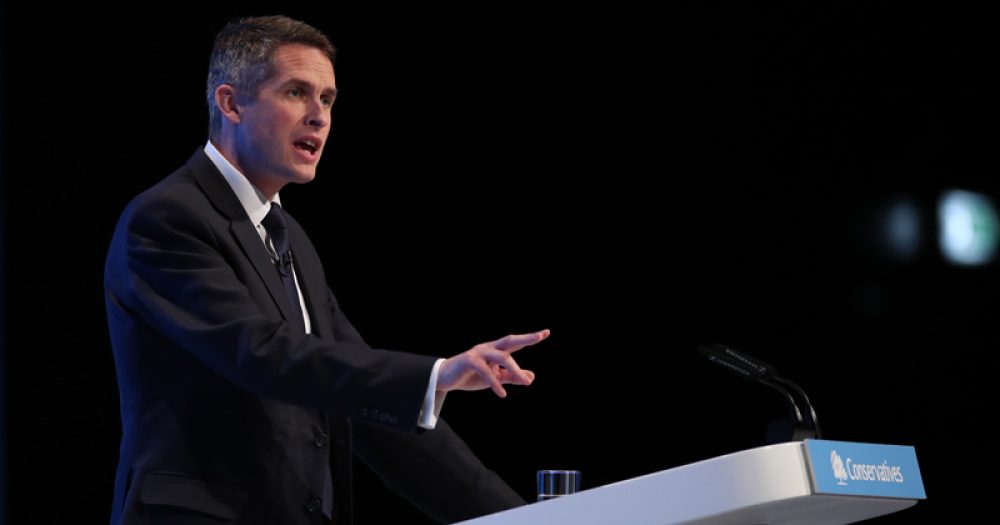A group of leading academy trust bosses have set out proposals for a £5.8 billion Covid recovery plan, as Gavin Williamson confirmed he was lobbying within government for extra school funding.
In an unusual intervention, the chief executives of five large multi-academy trusts have co-signed a letter to the education secretary warning failure to adopt their proposals risks “serious long-term damage” from the pandemic.
The plan, also backed by sector leaders representing trusts, colleges and headteachers, includes a “catch-up premium” for the persistently disadvantaged, a post-16 premium for those struggling with English and Maths, and thousands more mental health staff (see full details of the proposal below).
It came as Williamson faced further pressure over funding in a broadcast media round this morning, with questions over a study suggesting cash per pupil in 2023 will still be lower in real terms than in 2010. Speaking on Sky News to mark the new term, he said the government had delivered “record funding packages” but appeared to accept more was needed.
“We’re going into a comprehensive spending review. It wouldn’t surprise you, being education secretary, I’ll probably be asking for more. It’s probably what people would always be expecting.”
Facing similar questions on BBC Radio 4, he said he was “working with the chancellor and prime minister” to secure extra funding.
Williamson faces calls to now meet with the authors of the letter to discuss their three-year recovery plan, seen by Schools Week.
The CEOs of Ark, Delta, Outwood Grange, Star Academies and United Learning signed the document, alongside Geoff Barton of school leaders’ union ASCL, David Hughes of the Association of Colleges and Leora Cruddas of the Confederation of School Trusts.
Their demands, which they call a “bare minimum” costing £5.8 billion over three years, include:
1. £1.2bn catch-up premium (with hardest-hit areas getting most cash)
A temporary “catch-up premium” worth £1,250 a head should be introduced for pupils on free school meals for over 80% of their time at school.
The leaders highlight Education Policy Institute research showing such pupils who have faced “persistent disadvantage” have suffered twice the learning gap of children entitled to free school meals for much shorter periods of their schooling.
The gap between persistently disadvantaged children and the wealthiest has “barely shifted in almost a decade”, despite some progress among disadvantaged children as a whole under the existing pupil premium funding.
Schools can be held to account by Ofsted, which already checks pupil premium use, as well as through three-year plans boards should publish on how cash is spent. The DfE could check a sample, “while still giving schools autonomy”.
The local authorities hit hardest by Covid would be the biggest beneficiaries of this extra funding, the leaders said.
2. £300m post-16 premium
The letter proposes a similar “post-16 premium”, by doubling existing funding earmarked for pupils who have not achieved a grade 4 in English or Maths.
“Catch-up support is most urgent for older students who have the least time left in the formal education system,” they write.
This is estimated to cost around £300 million a year for three years based on 2020 funding.
3. £250m for nationwide mental health support
The government has promised to roll out new mental health support teams, linking up NHS services with schools and providing early intervention, to at least a fifth of the country by early 2023.
But education chiefs are urging it to go faster and further, committing to at least two mental health support teams in every local authority area by 2025.
They warn early support is “critical” to stop a recent increase in serious mental health problems among young people getting worse. This would cost around £250 million a year once operational.
4. Taskforce on persistent absenteeism
The letter highlights “growing concern” about the number of young people who continue to miss lessons for reasons other than Covid.
They say official data shows 13 per cent of pupils were persistently absent in autumn 2020, up from 10.9 per cent pre-pandemic.
A taskforce of councils and multi-academy trusts should be set up to “review the scale of the problem”, and some”additional support” may be needed to help them seek to re-engage students. Such costs are not included in the £5.8 billion figure.
5. Consider cash for extracurricular activities
Measures in their funding proposal beyond schools include more free early years provision for disadvantaged two-year olds and a pilot for better-funded nurseries in poor areas, costing around £130 million a year.
Other recommendations include “consideration of funding” for extracurricular activities pupils have missed out on over the past two years, and “permanent funding of food during holidays” for those entitled to free school meals.
The letter concludes: “Meeting this cost now may seem expensive but it will be a far smaller bill than the one we receive in the future if we do not invest.”








This is a positive move by CEOs, finally realising their political responsibilities in securing the future for the children they serve and coordinating a response to the chronic underfunding that still exists. Unfortunately a number of these CEOs in this small group draw obscene pay from these limited funds which distracts from their message as it dose give the impression of them feathering their own bed. Nevertheless it is encouraging to finally see trusts organise themselves and realise their huge collective potential to influence policy.